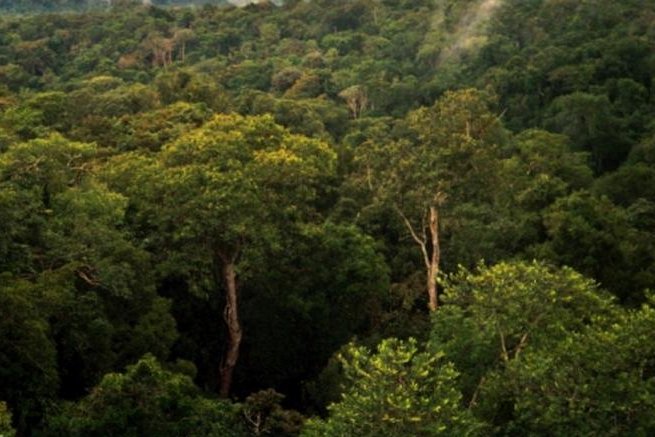Habitats throughout the tropics, previously places of refuge during periods of climate upheaval, are likely to become too unstable for many vulnerable species if global temperatures continue to rise. Photo by Phil P. Harris/
Wikimedia Commons
Feb. 3 (UPI) -- Some of the most biodiverse regions on Earth have served as a place of respite for thousands of plant and animal species during previous periods of climatic upheaval. New research suggests these former safe havens are now exceedingly vulnerable.
For the new study, scientists analyzed the influence of extreme climate change events on biodiversity hotspots across history. Researchers then compared previous climate change episodes with 21st century patterns.
The results, published Monday in the journal Nature Climate Change, showed the rapid pace of human-caused climate change is likely to erode the mechanisms that previously made biodiverse regions places of refuge.
"Our results show that the magnitude and accelerated rate of future climate change will disproportionately affect plants and animals in tropical regions and biodiversity hotspots," Damien Fordham, an associate professor of global ecology the University Adelaide in Australia, said in a news release. "Worryingly, these are regions on Earth with the highest concentrations of biodiversity."
Traditionally, climate change related to glacial-interglacial cycles occurs over relatively long timescales. During these periods of warming and cooling, old species have found ways to persist in the regions of biodiversity found throughout the tropics. These safe havens have also served as sites of speciation, places where new species diverge.
Modern climate change, caused by human-produced greenhouse gases, is happening at a much more rapid pace. According to the latest analysis, the speed and severity of the environmental changes caused by warming and severe weather is likely to disrupt the ability of biodiversity hotspots to shelter vulnerable species.
Places of climate stability are likely to become increasingly unstable as temperatures rise, researchers determined.
"Disturbingly, our research shows that more than 75 percent of the area of these climate safe havens will be lost in the near future due to 21st century warming," said lead researcher Stuart Brown, professor of biological sciences at the University of Adelaide. "The future is most ominous for species in tropical oceans. Severe negative impacts on the richness of coral species and marine life they support are expected in regions such as the Indo-Pacific. This is likely to cause human hardship for communities that depend on these resources for food, employment and income."















